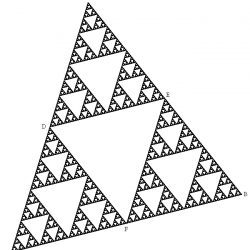 The vassalage is an institution typical of European feudalism, which took place between the lX and XV centuries of our era. Vassal is a type of bond between two free men. It is a collaboration pact between a lower-ranking noble called a vassal and a feudal lord, who is a higher-ranking noble. The agreement between the two nobles is that the feudal lord grants the vassal an asset, usually a fiefdom, in exchange for the vassal's obedience. When we say that a fiefdom is granted, we must bear in mind that a fiefdom is a land, which is used for a productive activity, whether agricultural or livestock.
The vassalage is an institution typical of European feudalism, which took place between the lX and XV centuries of our era. Vassal is a type of bond between two free men. It is a collaboration pact between a lower-ranking noble called a vassal and a feudal lord, who is a higher-ranking noble. The agreement between the two nobles is that the feudal lord grants the vassal an asset, usually a fiefdom, in exchange for the vassal's obedience. When we say that a fiefdom is granted, we must bear in mind that a fiefdom is a land, which is used for a productive activity, whether agricultural or livestock.
The pact between lord and vassal is a contract of vassalage. which is formalized through a tribute ceremony. In this act, the vassal extends his hands to the lord and the lord gives him a branch as a symbolic gesture that represents the land ceded in usufruct. This action is an oath of allegiance.
A pact in which both parties win
The vassalage ceremony represents a mutual commitment by which the nobles win. On the one hand, the lord offers the vassal military protection, since he agrees to protect him with his army. At the same time, the lord grants the vassal legal protection. By giving up his fiefdom, the lord allows the vassal to exploit the earth's resources and to exercise control over the population living in the fiefdom. In return, the vassal acquires the commitment to remain faithful to the lord, offering his advice and financial or even military support. At first, the agreement reached was voluntary, but with the passage of time it became mandatory.
The mutual obligations of vassalage imply that neither party loses, which in our days is called "win to win relations" (when in commercial relations an agreement is reached by which those who participate in it win in some sense).
The institution of vassalage entered into crisis when the vassals were gaining economic power over the lords. This generated legal conflicts between the lord and the vassal, especially in relation to land rights.
The concept of vassal today
 The word vassal today has a negative connotation. Thus, saying that someone is a vassal is a way of calling them a subordinate or someone of an inferior category who must submit to what a superior dictates.
The word vassal today has a negative connotation. Thus, saying that someone is a vassal is a way of calling them a subordinate or someone of an inferior category who must submit to what a superior dictates.
In international relations, sometimes the leaders of nations affirm that they do not want to be the vassals of a great power. There is also talk of financial vassalage, the power that the world of finance exercises over the political power of nations. Even in popular language someone can say that he is not anyone's vassal, implying that he has no owner and that he is a free person who makes his own decisions.
Photos: iStock - TanawatPontchour / canovass









